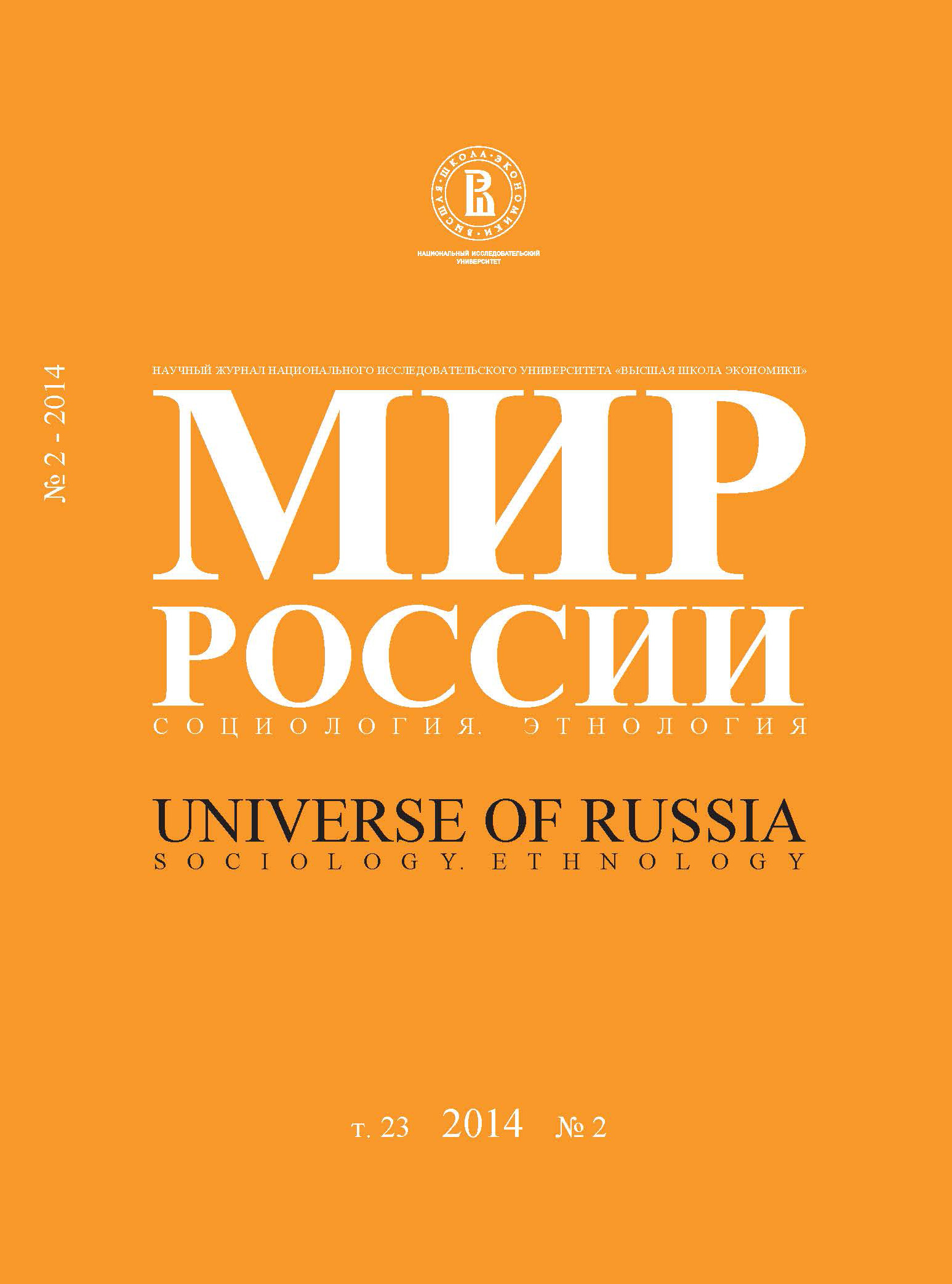Female Сhildlessness and Life Course Scenarios
Abstract
Veronika Duprat-Kushtanina — Research Fellow, Institute for Interdisciplinary Studies of Social Issues. Address: 190 Avenue de France, 75244, Paris, Cedex 13, France. E-mail: veronika.kushtanina@gmail.com.
Svetlana Lutoshkina — Post-Graduate Student, Faculty of Public Administration, Lomonosov Moscow State University. Address: 27/4 Lomonosov Ave., Moscow, 119192, Russian Federation. E-mail: sveta_lutoshkina@mail.ru.
In this article, we analyze life course scenarios leading to childlessness. The analysis is based on biographical interviews with women (aged over 50) who can certainly be characterized as childless. We identify four ideal types of childlessness: ‘bachelor’, ‘sacrificing’, ‘imposed’ and ‘hedonistic’ childlessness.
‘Bachelor’ childlessness is typical of those women who have no partner that could fulfill the role of the second parent. The ‘sacrificing’ model can be regarded as a subtype of ‘bachelor’ childlessness, but in this case, childlessness has a different rationale due to the reorientation of intergenerational transfers towards the elder generation at the cost of conjugality and parenting. ‘Imposed’ childlessness refers to consent with a partner’s strong decision not to have children, usually at the cost of preserving the relationship between the couple. Finally, ‘hedonistic’ childlessness can be considered a life project focused on attaining certain social status and well-being, and/or preserving a life-style that is incompatible with having children due to financial and time constraints.
The typology of these life courses is based on two major criteria. The first is the necessary distinction between intentional and unintentional childlessness. As for the second, we also distinguish between narratives based on whether they describe individual or collective decisions about refusing or postponing parenting. A completely conscious choice of childlessness is characteristic of ‘hedonistic’ and ‘imposed’ childlessness, while ‘bachelor’ and ‘sacrificing’ models demonstrate a delayed decision about parenting. The second criterion contrasts ‘hedonistic’ and ‘bachelor’ childlessness, on the one hand, and ‘imposed’ and ‘sacrificing’ childlessness, on the other. In the first case, narrators usually present their refusal to become parents or postponment of this decision as their own choice. While in the second (unless being a collective decision), the decision involves one or several significant others (i.e. partner or parents).






